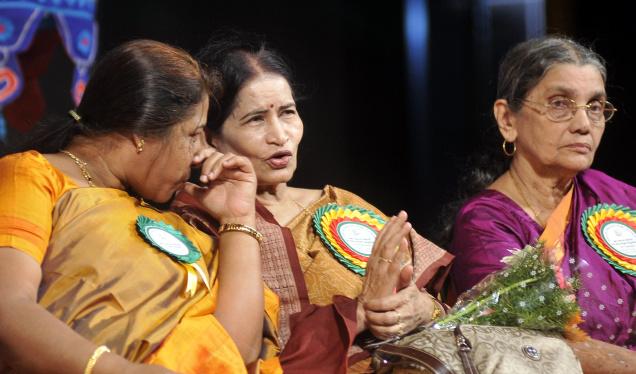BANGALORE, November 10: Are all women writers essentially feminist, and is women’s writing a separate entity? These were two questions thrown up by the keynote speaker and noted Odiya writer Pratibha Ray at the seventh Women Writers’ Conference of the Karnataka Lekhakiyara Sangha, an organisation of like-minded women writers in the State.
Ms. Ray’s questions are as old as the organisation itself, when back in 1979 a group of women decided to organise themselves into a sangha to promote works by women writers and inspire young women. Answering her question, Ms. Ray emphasised that all writers are feminists, because “inherently a good piece of writing questions the social order, and in spirit, protests against that which is wrong”. “In that sense, all writers are feminists. And while women’s writing is not a separate entity, women writers are able to bring in different kinds of sensibilities and life experiences into their writing.”
Ms. Ray said that many women writers among regional writers are “triply marginalised”, one in terms of gender, two because of the language they write it (English today being the language of power), and three, in terms of class.
“I’ve seen many women writers who have been able to come up against odds and do exceedingly well. Whether it is Ismat Chughtai or Mahasweta Devi or Sara Aboobakar, they were all confident and, while they draw from tradition, they are also sensitive to dogmatisation of cultural/traditional values.”
Ms. Aboobakar spoke on the need for women writers to stand up against the assault on free speech in the State. “We saw the historic arrest of writer Yogesh Master (author of Kannada novel Dhundi) by right-wing forces, who believed he did not have the right to offend them with his writing. Writers must organise themselves and stand up to such forces,” she emphasised.
‘Write more’
She said women, Muslim and Dalit women in particular, were under-represented in Kannada literature, unlike in Kerala where both the minority communities and women formed central characters in many iconic literary works. Given that patriarchal structures remain intact and women, even little girls, continue to be the subject of sexual abuse and violence, there is a need for literature and writers in particular to write more on these topics.
Ms. Aboobakar said languages remain alive because of literature. And for this, she said, we need writing for children. “Look at the success of J.K. Rowling’s Harry Potter series. It has been a phenomenal success with over a lakh copies sold the day the fifth edition was released. Ms. Rowling had managed to inspire young people to read, and cultivate the reading habit. We need women like her to do the same with regional languages.”
A website of the sangha was launched by writer Chandrashekar Patil.

